The Nationals have been making history on their first-ever World Series run, but just as importantly, they’ve been reviving the history of this city that’s already been made. As writers look backward to remember the last time Washington fielded a great baseball team, their eyes are turning to the under-studied history of baseball’s Negro Leagues.
“This is good for us, it’s good for the foundation, it’s good for major league baseball,” said Sean L. Gibson, executive director of the Josh Gibson Foundation.
Gibson is the great-grandson of his foundation’s namesake, who is widely considered one of the best sluggers of all time. Josh Gibson played for the Homestead Grays, a team based outside Pittsburgh before financial reasons in the 1930s brought their success to D.C., where they were renamed the Washington Homestead Grays.
Today, his great-grandon continues to honor the family legacy by serving “inner-city kids through the name of the great Negro League baseball player.” This work has occasionally brought him to Washington, where as recently as last summer two Little League teams played the first Pittsburgh Homestead Grays versus Washington Homestead Grays game at the Nationals Academy.

“I think our foundation has definitely brought a lot of awareness to the Homestead Grays,” GIbson said. “D.C. was our second home, so we would love to be a part of that D.C. tradition.”
In fact, Gibson credits the World Series with bringing greater attention to his work and the history of the Negro Leagues right before the centennial of the Leagues’ founding on Feb. 13, 2020.
“This would not be happening if the Nationals didn’t win a championship,” Gibson said. “Sometimes it takes something like this to bring the Negro Leagues back into the forefront.”
Roy Doswell, curator of the Negro Leagues Historical Museum in Kansas City, Missouri, said the importance of the Washington-Baltimore corridor for black baseball cannot be understated.
“I think it is important for Washington to recognize the Grays and not forget them because they were really good,” Doswell said.
In fact, Doswell calls the Grays the “gold standard of black baseball.” During their time playing in Griffith Stadium alone, the ballpark that also hosted the beleaguered Senators, the Grays won the 1940, 1943 and 1948 Negro Leagues World Series.
But Washington sports fans at home never got to see the World Series games. As Jackie Robinson and others lead the way on integration in the Major Leagues, interest in black baseball teams dwindled.
Doswell said “the success of these teams in the ‘40s” helped white MLB owners and fans realize just how good black players really were. And with that recognition came increased poaching of black players from the Negro Leagues into Major League baseball.
Rick Bush co-edited “Bittersweet Goodbye,” a book about the 1948 World Series that would ultimately be the last one played by the Negro Leagues. He said the interest he’s seen in his book, and the history of black baseball generally, has grown considerably as Washington residents wake up to the history of the sport in their own city.
“Most casual fans don’t even know that they existed, a die-hard fan might but most casual fans never really paid attention,” Bush said.
After the interest in his first book, Bush said he’s working on two more about the 1946 Newark Eagles and the 1935 Pittsburgh Crawfords, two other outstanding black teams.
Meanwhile, Sean Gibson hopes that more recognition is coming for the early heroes of black baseball, and with it, more support for the programs that he funds today. On Feb. 13, 2020, his organization and others hope to celebrate the centennial anniversary of the founding of the Negro Leagues.
“We would like to hopefully hear from the Nats,” Gibson said, “and we can maybe do something in D.C. next year for our centennial.”
For more information about the Josh Gibson Foundation and the work that they do, visit their website here.

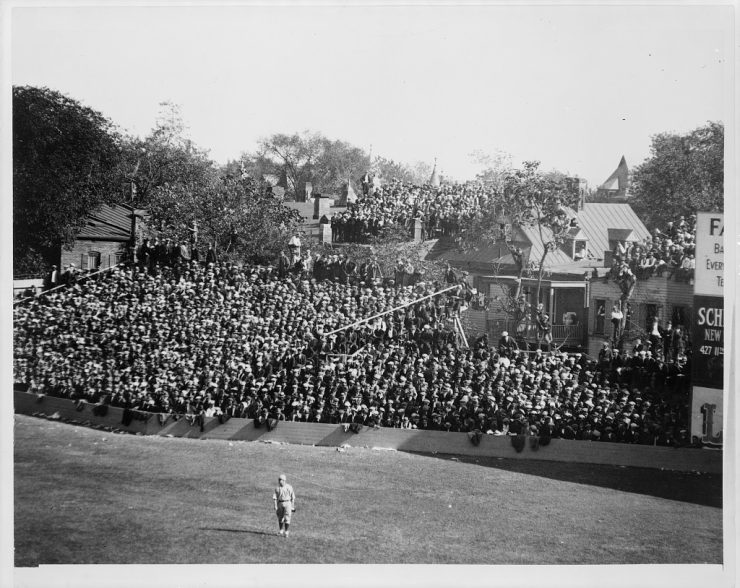
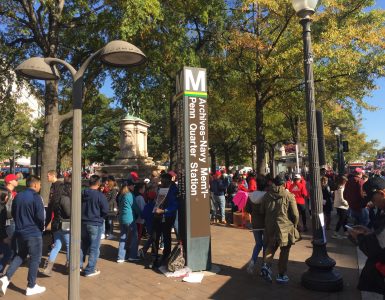
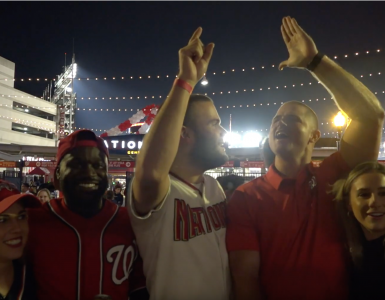
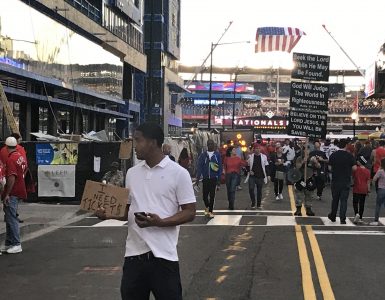







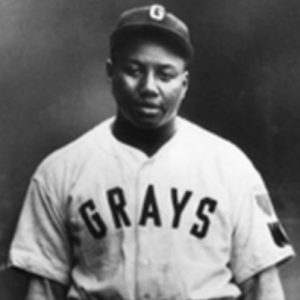

Add comment